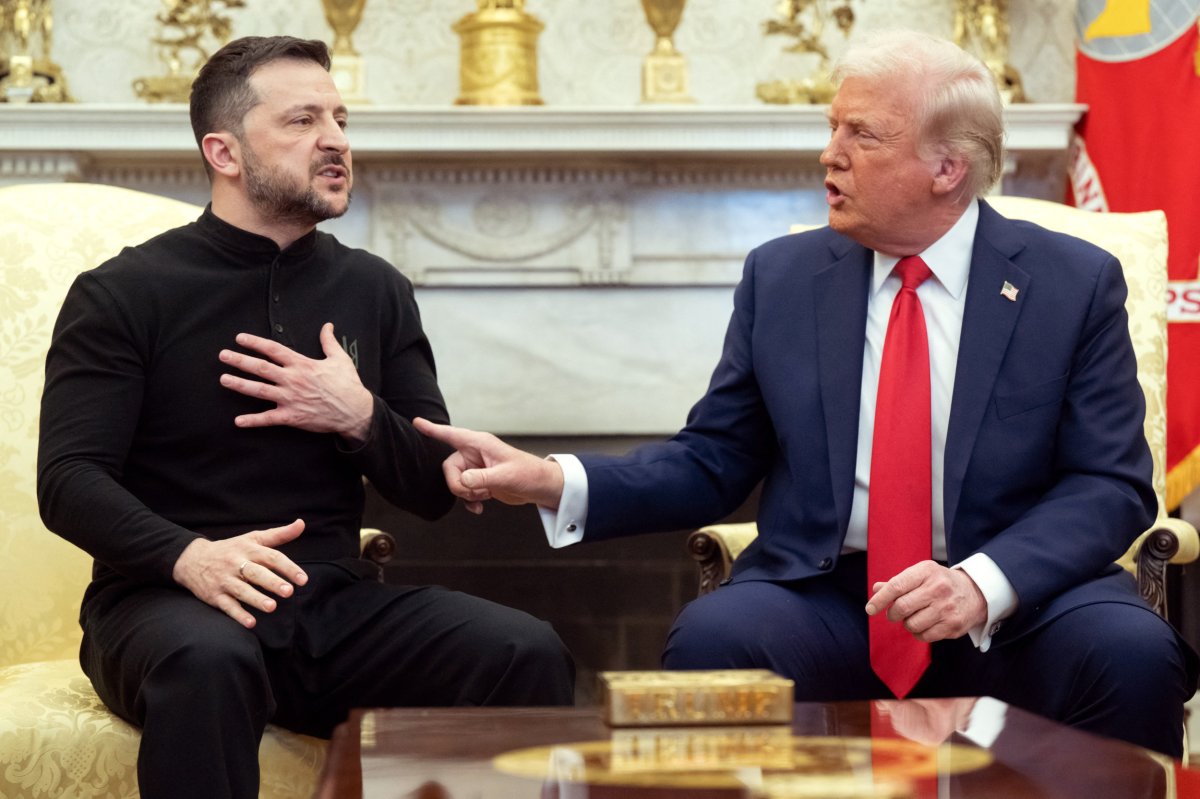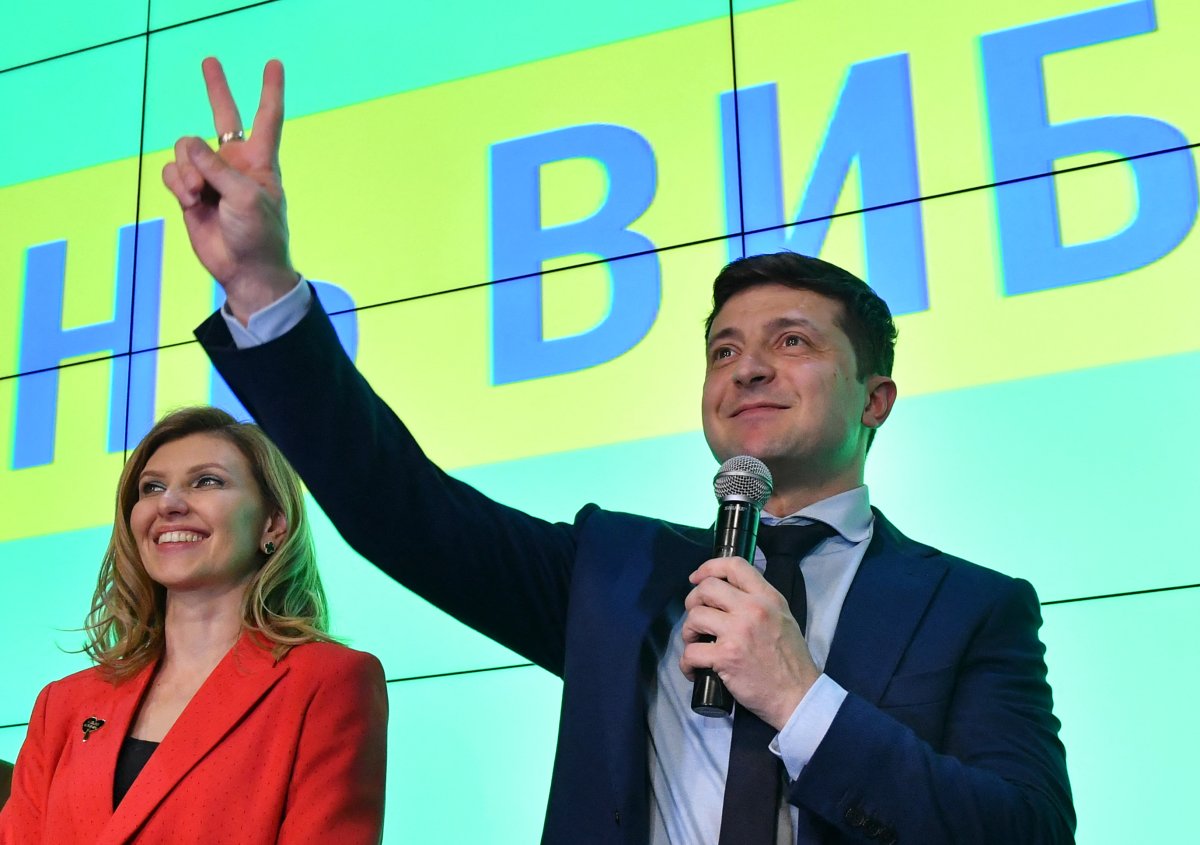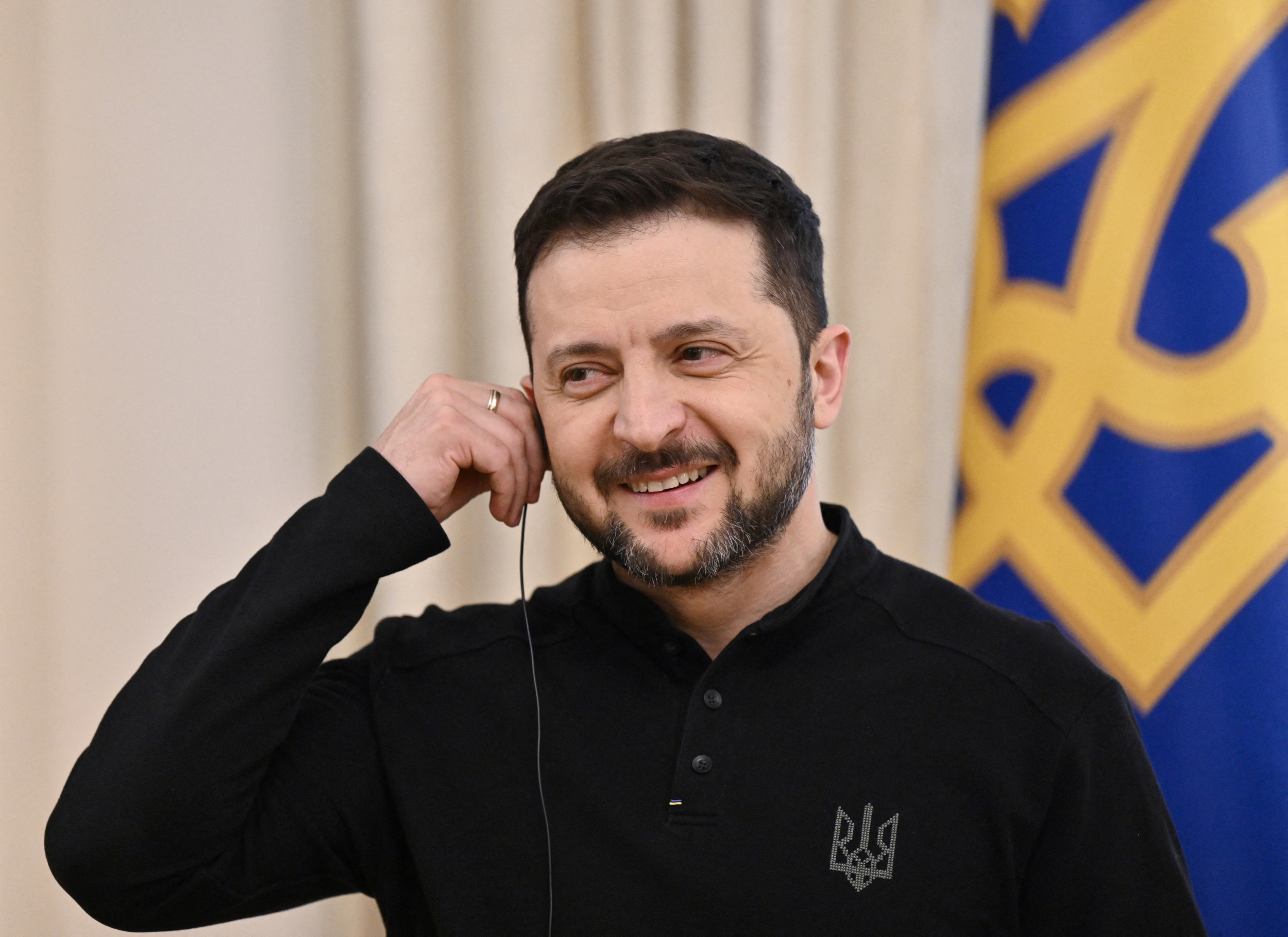The message from Washington is that Volodymyr Zelensky is his country’s legitimate leader, despite what Russian President Vladimir Putin thinks, but a presidential election in Ukraine cannot be delayed indefinitely because of war.
After the U.S. conducted a month of shuttle diplomacy with Ukrainian and Russian delegations, Putin’s questioning of whether Zelensky should even be part of the conversation irked Trump enough to tell NBC News how “pissed off” he was.
U.S. State Department spokesperson Tammy Bruce doubled down on Washington’s rejection of Putin’s proposal for an interim Ukrainian administration; this dealt a blow to the Kremlin’s aim of replacing the Kyiv government with one supine to Moscow.
The Economist weekly news magazine reported that Zelensky has directed his team to begin preparing for a ballot this summer. However, the Ukrainian leader’s office told the BBC no such meeting took place.
But one Ukrainian expert told Newsweek that it is too early to hold a ballot, and it would take up to a year to organize following a ceasefire. Another said that a recent popularity boost Zelensky has enjoyed may wane by the end of the summer. Newsweek has contacted the Ukrainian presidential office for comment.
GENYA SAVILOV/Getty Images
Why It Matters
Even before his five-year presidential term expired in May 2024, Zelensky had to justify why he postponed another election due to wartime martial law—a decision that is backed by Ukraine’s constitution and the majority of its population.
The tricky logistics of holding a ballot in a country partly occupied by Russia while troops are on the front line is evident, but Zelensky has faced calls from some U.S. Republicans that the democratic process was equally as important.
Kyiv has the short-term boost of Trump’s backing of Zelensky’s administration, but if reports of a Ukrainian election are true, they come amid a possible ceasefire and Ukraine’s wish to retain American military assistance.
What To Know
Trump and Zelensky have had their moments in recent weeks, ranging from an argument in the Oval Office to the former calling the latter a “dictator” and even Zelensky accusing his U.S. counterpart of believing Russian disinformation.
But Zelensky has Trump’s backing as leader, at least for the time being, after he rejected Putin’s claims that his legitimacy had expired with his presidential term.
That support may have an expiration date, though, and The Economist reported how Zelensky had discussed with his officials organizing an election once a full ceasefire is in place—a situation that the U.S. hopes can happen by the end of April.
However, Zelensky’s office told BBC’s Ukrainian service that no such meeting took place and that main priority was to achieve peace.
Ukraine’s Parliament is due to vote on extending martial law on May 5, which would be an essential first step in holding the ballot. Ukrainian law specifies a minimum 60-day campaigning period, which would make the start of July the likely earliest date.
Elina Beketova, democratic resilience fellow at the Center for European Policy Analysis (CEPA), told Newsweek that elections would only be possible after a stable ceasefire and peace were achieved—neither of which is in place now.

SAUL LOEB/Getty Images
Beketova said the consensus among Ukrainians is that elections will be possible no earlier than six months after martial law ends.
First, there needed to be a sustainable ceasefire with security guarantees from the guarantor countries, then preparations for elections. As such, elections will only take place once stable peace is achieved and martial law is lifted.
Beketova said there are many issues to address, including how Ukrainian refugees who fled abroad will vote and changes to electoral districts due to occupied territories.
Beketova added that she believes that Ukraine will need at least 12 months to restore election infrastructure, which means preparations could begin, but the elections themselves can only take place once stable peace is established.
“We are talking about six to 12 months of preparation for the elections,” Beketova said.
Zelensky’s Popularity and Possible Opponents
Viktor Kovalenko, a Ukrainian political analyst who is behind the Ukraine Decoded Substack, told Newsweek that Kyiv’s denials about election plans showed that Zelensky’s team is unsure about his chances of winning.
Kovalenko said Zelensky’s popularity had strengthened after his televised feud with Trump and Vice President JD Vance in the White House because he was seen as standing up for Ukraine’s interests.
But the longevity of this wave and its conversion into electoral votes are questionable, unless elections are to be conducted very soon, not later than this summer.
Kovalenko, a Ukrainian military veteran from 2014 to 2015, said Zelensky has two main competitors—the former General Valeriy Zaluzhnyi, who is now Kyiv’s ambassador to London, and the ex-president Petro Poroshenko.
Poroshenko survived both pro-Russian and pro-Western governments, although he said that his team opposes a wartime election. Zaluzhnyi dismissed the speculation on Monday, telling Ukrainian media that the war is ongoing and now was not the time to comment on election rumors.
Kovalenko said that Zaluzhnyi has the charisma and strong popular support. However, his big minus is a lack of a political party and so, if elected, he will have to compromise with everybody, which would make him a weak leader.
“The other realistic scenario is when General Zaluzhnyi joins the presidential political party and supports Zelensky’s candidacy,” Kovalenko said.
“In this case, Zelensky would have had a more substantial chance of getting reelected, and the unity of the country would have been preserved, which would be necessary for the postwar period, expected to be challenging.”
Politico reported that Trump aides had held secret talks with Zelensky’s other political opponents, including Yulia Tymoshenko, leader of the Batkivshchyna party and coleader of the Orange Revolution over 20 years ago.

GENYA SAVILOV/Getty Images
What People Are Saying
Elina Beketova, fellow at CEPA, said: “There needs to be a sustainable ceasefire with security guarantees from the guarantor countries, then preparations for elections, and elections will only take place once stable peace is achieved and martial law is lifted.”
Viktor Kovalenko, Ukrainian analyst, said that Kyiv’s denials about an election taking place “demonstrate that the Zelensky team is still unsure about their leader’s chances to get reelected.”
What Happens Next
The head of Ukraine’s Central Election Commission, Oleh Didenko, told online media outlet Ukrainska Pravda that Parliament must decide to call presidential elections within a month after the end of martial law and the process itself should last 90 days. Much hinges on the outcome of peace talks and whether martial law can be lifted.













